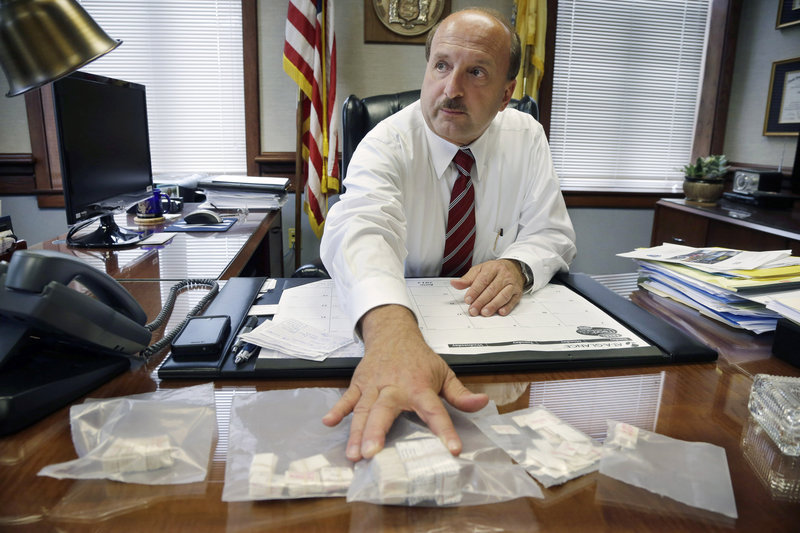TOMS RIVER, N.J. – With the number of heroin overdoses skyrocketing nationwide, a growing number of law enforcement agencies are dusting off strict, rarely used drug laws, changing investigatory techniques and relying on technology to prosecute drug dealers for causing overdose deaths.
The aggressive change in tactics comes as more people turn to heroin because of crackdowns on powerful prescription opiate painkillers that make them more expensive and inaccessible. The popular prescription drug OxyContin has also been reformulated to make it difficult to crush and snort, making it less desirable on the street, law enforcement officials said.
Nationwide, the number of people who said they have used heroin in the past year skyrocketed by 66 percent between 2007 and 2011, according to the Substance Abuse and Mental Health Services Administration. The number of people who died of overdoses and had heroin present in their system jumped 55 percent from 2000 to 2010, according to the Centers for Disease Control and Prevention.
Rather than going after lower-level users of heroin, prosecutors are looking to take out dealers and members of the supply chain by connecting them and the drugs they sold to overdose deaths and charging them with laws that carry stiff penalties.
“We’re going to be ruthless,” said prosecutor Joseph Coronato of Ocean County, N.J., where 75 overdose deaths have occurred this year. “We’re looking for long-term prison sentences.”
Coronato and other New Jersey prosecutors are employing the state’s little-used “strict liability for drug death” statute, a first-degree crime that holds dealers and producers responsible for a user’s death and has a 20-year maximum sentence.
He and other prosecutors nationwide are changing the way they investigate overdoses, which were once looked upon as accidents. Detectives are being immediately dispatched when word of an overdose comes in. Paramedics are being told to treat overdoses like crimes. And coroners are being asked to order autopsies and preserve forensic evidence, as proving that a death was caused solely by heroin can be difficult when other drugs are present.
“When you go to an overdose death, treat it like a crime scene. Don’t treat it like an accident,” said Kerry Harvey, the U.S. attorney for eastern Kentucky. He has started prosecuting people who sold both prescription opiates and heroin under a federal law that prohibits the distribution of illicit substances and allows additional penalties for a death.
Technology is another boon. Prosecutors said cellphones have been instrumental in helping gather evidence because people leave behind a trail of text messages and calls.
Send questions/comments to the editors.



Success. Please wait for the page to reload. If the page does not reload within 5 seconds, please refresh the page.
Enter your email and password to access comments.
Hi, to comment on stories you must . This profile is in addition to your subscription and website login.
Already have a commenting profile? .
Invalid username/password.
Please check your email to confirm and complete your registration.
Only subscribers are eligible to post comments. Please subscribe or login first for digital access. Here’s why.
Use the form below to reset your password. When you've submitted your account email, we will send an email with a reset code.